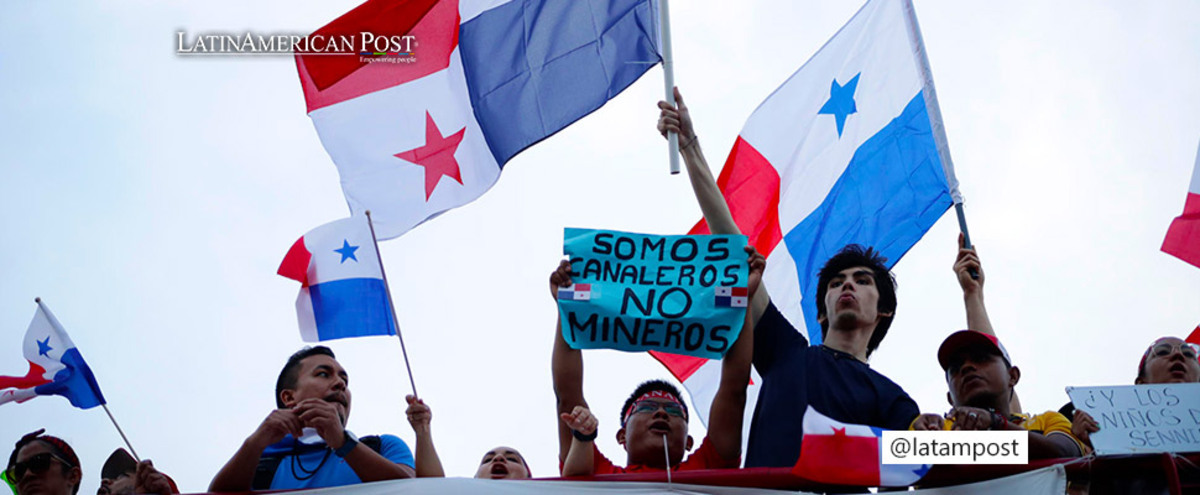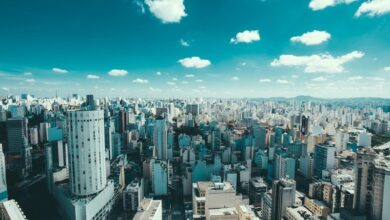In a remarkable shift propelled by extensive public outcry, Panama's National Assembly is considering revoking a major mining contract with Canadian firm First Quantum, signaling a pivotal moment in the country's environmental and economic policy. The development follows the nation's largest protests since last July, rooted in deep-seated environmental concerns and a debate over financial priorities.

Photo: 10/29/2023.- Demonstrators participate in a new day of protests against the new mining agreement with Minera Panama, a subsidiary of Canada’s First Quantum Minerals (FQM), today in Panama City, Panama. EFE/ Bienvenido Velasco
The Latin American Post Staff
Escucha este artículo
Leer en español: El levantamiento de Panamá contra la minería conduce a una acción legislativa
A Crucial Juncture for Panama
Panama's decision to potentially nullify a significant mining contract with First Quantum Minerals and its subsidiary, Minera Panama, underscores a crucial juncture in the nation's approach to environmental stewardship and economic growth. This legislative move, nearing finalization, came as a direct response to a wave of widespread protests, marking the most extensive public outcry since the cost of living crisis last year.
This uprising reflects deepening anxieties over preserving Panama's rich biodiversity, particularly in Colon state's forested areas, earmarked for extended open-pit copper mining. The contentious contract, promising 20-40 additional years of mining over 13,000 hectares, sparked fears over the potential destruction of vital ecosystems and the contamination of drinking water sources. The area, central to the Mesoamerican biological corridor, harbors a significant fraction of the world's known species, highlighting the global ecological stakes of this local dispute.
Environmental Concerns Reshape Economic Priorities
Public pressure has been instrumental in shifting the narrative from economic incentives to environmental conservation. The original contract, signed in March, represented Panama's most prominent private investment, contributing approximately 3% to the national GDP. Yet, the prospect of sustained environmental degradation galvanized a robust protest movement, encompassing a diverse coalition from nurses to environmental activists. Their concerns transcended local issues, touching on broader fears about the impact on the Panama Canal, a crucial global shipping route and a symbol of national pride.
The Assembly's rapid movement towards repealing the contract and imposing a mining moratorium until the Mineral Resources Code is reformed demonstrates the power of public opinion in shaping policy. Yet, this decision has its complexities. Legal experts caution that revoking the contract through legislative means could expose the government to costly lawsuits, potentially avoidable if Panama's Supreme Court deems the agreement unconstitutional. This legal entanglement illustrates the intricate balance between sovereign decision-making and adherence to international business contracts.
Civil Order vs. Right to Protest
The response to the protests, characterized by skirmishes between demonstrators and anti-riot police near the Assembly building, underscores the tensions between civil order and the right to protest. The strong police response, employing tear gas and rubber bullets, juxtaposes strikingly with the peaceful marches to the Supreme Court building, where demonstrators called for prioritizing the lawsuits challenging the contract's constitutionality.
Amid these tumultuous events, the sharp decline in First Quantum's share prices — a staggering 47% drop since the start of the week — vividly illustrates the market's sensitivity to social and environmental unrest. Investors, often swayed by stability and predictability, are evidently rattled by the fierce public opposition and the uncertain future of the mining project.
This unfolding situation in Panama raises critical questions about the balance between economic development and environmental preservation. It challenges the traditional narrative that pits these two priorities against each other, suggesting a need for a more sustainable approach to economic growth that harmonizes with environmental protection.
A Global Lesson: Balancing Growth and Ecology
The Panamanian experience also highlights the evolving dynamics of global environmental activism. No longer confined to local or national boundaries, such protests draw attention to the interconnectedness of ecological systems and the shared responsibility for their stewardship. Panama's battle is not just about a mining contract; it's a microcosm of a larger global struggle where economic ambitions are increasingly being weighed against ecological sustainability.
As the final vote looms, Panama stands at a crossroads. The outcome will not only determine the fate of the mining project but also signal Panama's commitment to environmental conservation and how it envisions its economic future. Regardless of the decision, this episode has ignited a national conversation about the kind of development Panama and, by extension, other nations should pursue in an era of heightened environmental consciousness.
Also read: Panama Resumes Controversial Mining Contract Talks with Canadian Company
Balancing Growth and Ecology
In a world of climate change and biodiversity loss, Panama's confrontation with its mining policy offers a template for other countries facing similar dilemmas. It underscores the imperative to consider long-term environmental impacts in development decisions, highlighting the role of public activism in influencing policy. Panama's story thus emerges as a beacon, guiding the global conversation on reconciling economic development with the imperative to preserve our planet's ecological heritage.




